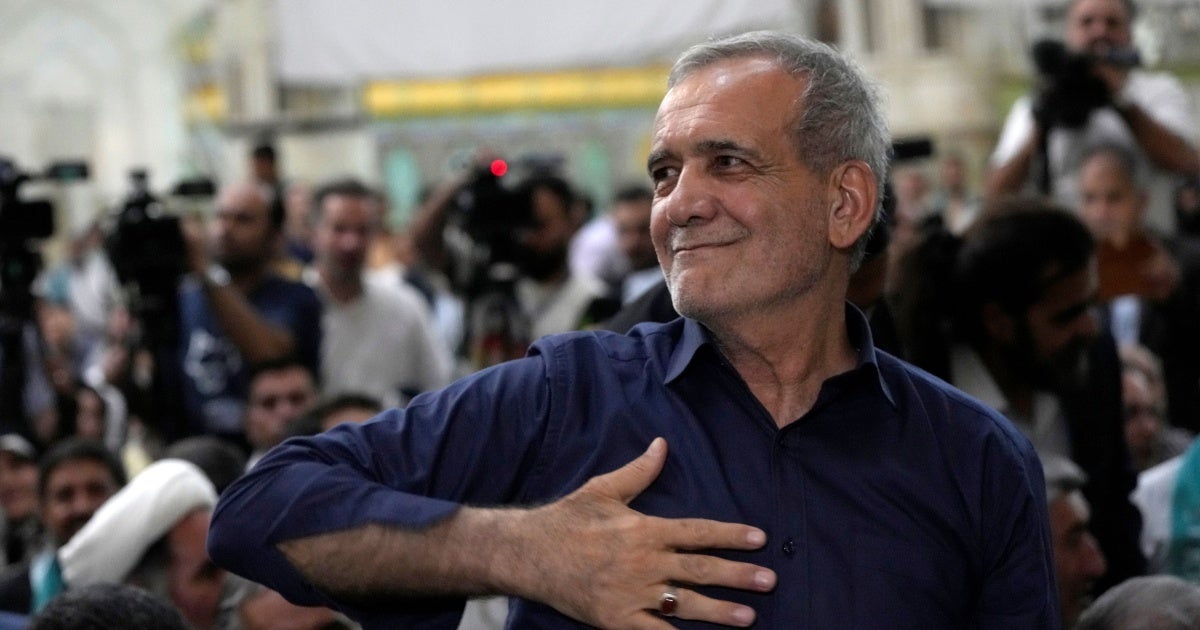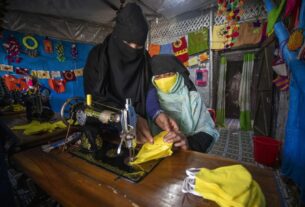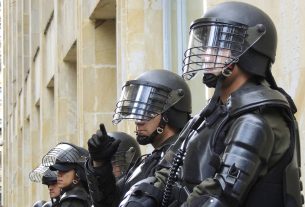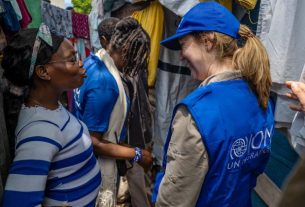(Beirut) – Incoming Iranian President Masoud Pezeshkian should confront widespread rights violations by government agencies, including Iran’s security forces and the judiciary, Human Rights Watch said today. On July 5, 2024, Pezeshkian defeated Saeed Jalili in the second round of Iran’s presidential elections.
“Incoming Iranian President Masoud Pezeshkian should confront Iran’s egregious human rights abuses, including alarming rates of executions, systemic oppression of women, and brutal repression of ethnic and religious minorities,” said Nahid Naghshbandi, acting Iran researcher at Human Rights Watch. “Ending impunity for these injustices is essential for Pezeshkian to show Iranians that the government can address their legitimate, widespread grievances and demands for fundamental change.”
A significant number of people and civil society groups boycotted the election. According to Shargh daily, the voter turnout in the election’s first round was 39.96 percent, the lowest turnout in Iran’s presidential election history, although the second round participation rate increased to 49.8 percent.
Nine women political prisoners and 55 political and civil activists inside and outside Iran, including the 2023 Nobel Prize laureate Narges Mohammadi, also emphasized in separate statements that liberation cannot be achieved through ballot boxes and the dire situation of the country will not improve with “vote therapy.” Signatories of these statements included prominent Iranian activists.
The elections were neither free nor fair. Before the election, the Guardian Council, a body of 12 male religious jurists and legal experts responsible for vetting candidates, disqualified many candidates without providing a reason, including several prominent government officials. Ali Larijani, the former speaker of parliament, and Eshaq Jahangiri, the first vice president from 2013 until 2021 in Hassan Rouhani’s government, were among them. Notably, the Guardian Council has never approved a female presidential candidate.
Pezeshkian will start his presidency in August facing significant challenges. Considerable social discontent, reflected in low election participation and repeated protests along with a weak economy, are major domestic issues. The “Woman, Life, Freedom” movement and the government’s brutal response have highlighted the dire state of human rights.
According to a recent Amnesty International report, Iran executed 853 people in 2023, the highest in eight years, including 481 for drug-related offenses. By March 20, at least 95 executions had been recorded during 2024. The Baluch ethnic minority, five percent of Iran’s population, constituted 20 percent of people executed in 2023, with at least 172 Baluch individuals executed. A 2023 report by Iran Human Rights revealed increased executions targeting ethnic minorities in provinces such as West Azerbaijan, East Azerbaijan, Sistan and Baluchistan, and Kurdistan, with 130 executions in 2022 compared with 62 such executions in 2021 and 60 in 2020.
Pezeshkian indirectly referenced the government’s alarming use of executions in a televised debate response to Saeed Jalili, the other candidate in the runoff election. During the debate, broadcast by an Iran state television channel on July 1, Pezeshkian said: “I will withdraw from the elections if Mr. Jalili commits that if he fails to achieve eight percent economic growth in his government, they should execute him.”
Pezeshkian should also address the extensive legal and social barriers that curtail women’s lives and their access to economic opportunities, perpetuating significant gender disparities. Iran ranks poorly in global gender equality assessments, particularly in economic participation. These challenges are compounded by systematic violations of women’s rights, including Article 638 of Iran’s Islamic Penal Code, which criminalizes not wearing a “proper” hijab. The law imposes up to two months in prison and fines for the women accused of violations, in violation of their rights to privacy and nondiscrimination.
On June 21, during the third debate among the presidential candidates, Pezeshkian said: “Regarding hijab, we should not enforce it in a way that leads to dissatisfaction. Even with coercion, we cannot force our children and grandchildren into something.”
This pledge came two years after the death of Mahsa Jina Amini in custody by morality police, which sparked the 2022 nationwide protests. Iran has introduced a revamped morality police, known as “Plan Noor,” and passed a “Chastity and Hijab Bill” in parliament.
Iranian authorities’ repression of ethnic and religious minorities has also been brutal over the past several years. Human Rights Watch has documented the use of excessive and lethal force against protesters in areas with large Kurdish and Baluch populations, as well as the use of rape and torture in detention facilities in Kurdish, Baluch, and Azeri areas. In April 2024, Human Rights Watch released a report in which researchers found that decades-long systematic repression of the Baha’i minority amounts to the crime against humanity of persecution.
On June 22, during a gathering in Sanandaj, in Kurdistan province, Pezeshkian outlined the urgent need to address underdeveloped regions, particularly those near borders. “I will definitely put an end to regional injustices,” he said. The effectiveness of his plans remains to be seen given previous administrations’ failures in addressing these inequalities, Human Rights Watch said. Under both Hassan Rouhani and Ebrahim Raeesi’s presidential administrations, oppression against religious and ethnic minorities continued undiminished.
In foreign policy, the Iranian president and foreign minister face limitations on their decision-making, as decisions by the executive branch and Foreign Ministry are overseen not only by the supreme leader but also by powerful actors like the Islamic Revolutionary Guard Corps.
“Rebuilding trust with people in Iran requires more than promises that have been unmet for years,” Naghshbandi said. “It demands immediate, tangible action to improve the human rights of people across the country. A meaningful first step would be for Pezeshkian to order the release of all detained activists, peaceful protesters, and human rights defenders, who never should have been jailed in the first place.”



